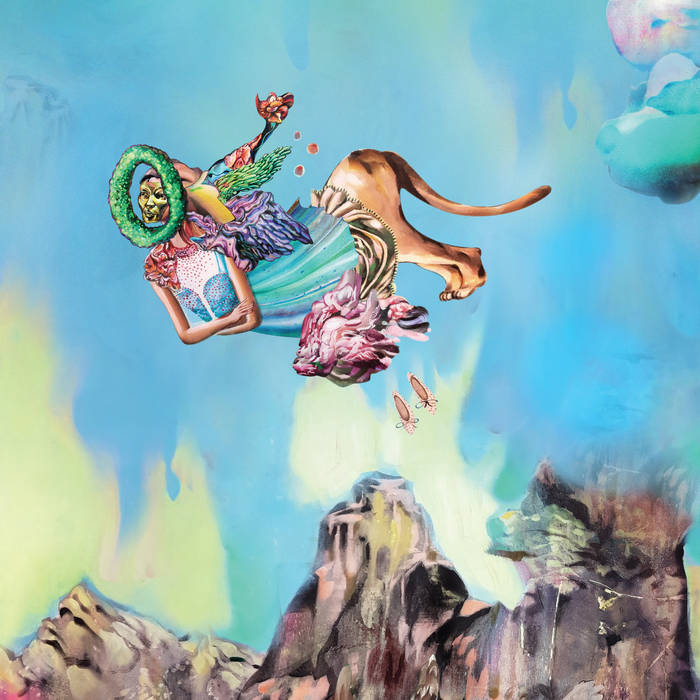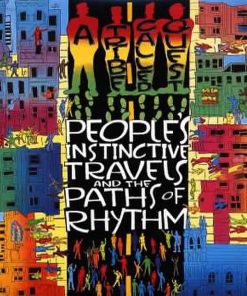Nadah El Shazly – Ahwar LP Nawa Recordings (UK)
$ 29,98 Original price was: $ 29,98.$ 17,99Current price is: $ 17,99.
Nawa Recordings present Ahwar, the debut album by Nadah El Shazly. Starting out singing Misfits covers in a local punk band, then moving on to producing her own electronic tracks and making a name for herself in Cairo’s underground scene, Nadah El Shazly’s backstory is not that unusual. Her debut album on the other hand, is an entirely unexpected story. Two years in the making, Ahwar (Arabic for “marshlands”) is an otherworldly record, not unlike an abstract mythological story-tale. Opening with the mangled and filtered vocals of “Afqid Adh-Dhakira (I Lose Memory)”, like an alien dream, the drones of a bowed double bass lead the listener into a drum groove that lays the groundwork for El Shazly’s sultry and captivating presence. The Arabic prose lingers over interjections of slap-back delayed guitar twangs and an avant-garde arrangement of dissonant winds, horns, and seemingly random drum fills, ending with an eerie soundscape that wouldn’t feel out of place in a giallo classic. Composed, written, and produced by El Shazly herself in collaboration with The Dwarfs Of East Agouza‘s Maurice Louca and Sam Shalabi on co-composition and arrangement duties, the album was crafted across two continents, between Canada and Egypt, and features the crème of Montreal’s contemporary-classical and improvised music scene, most of whom are members of Shalabi’s own Land Of Kush ensemble. In between El Shazly’s five original tracks, the listener is treated to an abstract conversion of Sayyid Darwish‘s classic “Ana ‘Ishiqt (I Once Loved)”. El Shazly’s haunting vocal floats over broken kalimba and harp arpeggios which slowly intertwine with a free, bowed double bass improv to nestle within the breaks between Younes Al-Qadhi‘s early 20th century verses of love and betrayal. More than that, it is difficult to really describe, but imagine the worlds of Nico, Björk, and Annette Peacock with the Arabic language as their mother tongue, re-approached through acoustic avant-jazz harmony and re-constructed with a dash of Kamilya Jubran‘s modern styling of Arabic maqam and you may be somewhere close. Recorded and delicately mixed through miles of analog cabling by Thierry Amar and mastered by Harris Newman, the album is adorned with the surrealist artwork of Egyptian artist Marwan El-Gamal and designed with custom typography by Egyptian designer Valerie Arif. Includes booklet featuring the lyrics in Arabic and English.
Fast Shipping and Professional Packing
We offer a broad range of shipping options due to our long-running partnerships with UPS, FedEx and DHL. Our warehouse employees will pack all goods to our exacting requirements. Your items are carefully inspected and secured properly prior to shipping. We ship to thousands of customers every day from all over the world. This demonstrates our dedication to becoming the largest online retailer in the world. Warehouses and distribution centres can be located in Europe as well as the USA.
Note: Orders that contain more than one item will be assigned a processing date depending on the item.
We will carefully examine all items before sending. Today, the majority of orders will be shipped within 48 hours. The expected delivery time will be between 3 and 7 days.
Returns
Stock is dynamic. It's not completely managed by us, since we have multiple entities, including the factory and the storage. The actual inventory can fluctuate at any time. It is possible that the stocks could be depleted after your order has been processed.
Our policy lasts 30 days. If you haven't received the product within 30 days, we're not able to issue a refund or an exchange.
To be eligible for a refund the product must be unopened and in the same state as when you received it. The item must be returned in its original packaging.
Related products
Vinyl
Acid Mothers Temple & Melting Paraiso U.F.O. – Hallelujah Mystic Garden Part 2 LP Important Records
Vinyl
Acid Mothers Temple & Melting Paraiso U.F.O. – Hallelujah Mystic Garden Part 1 LP Important Records
Vinyl
Vinyl



































